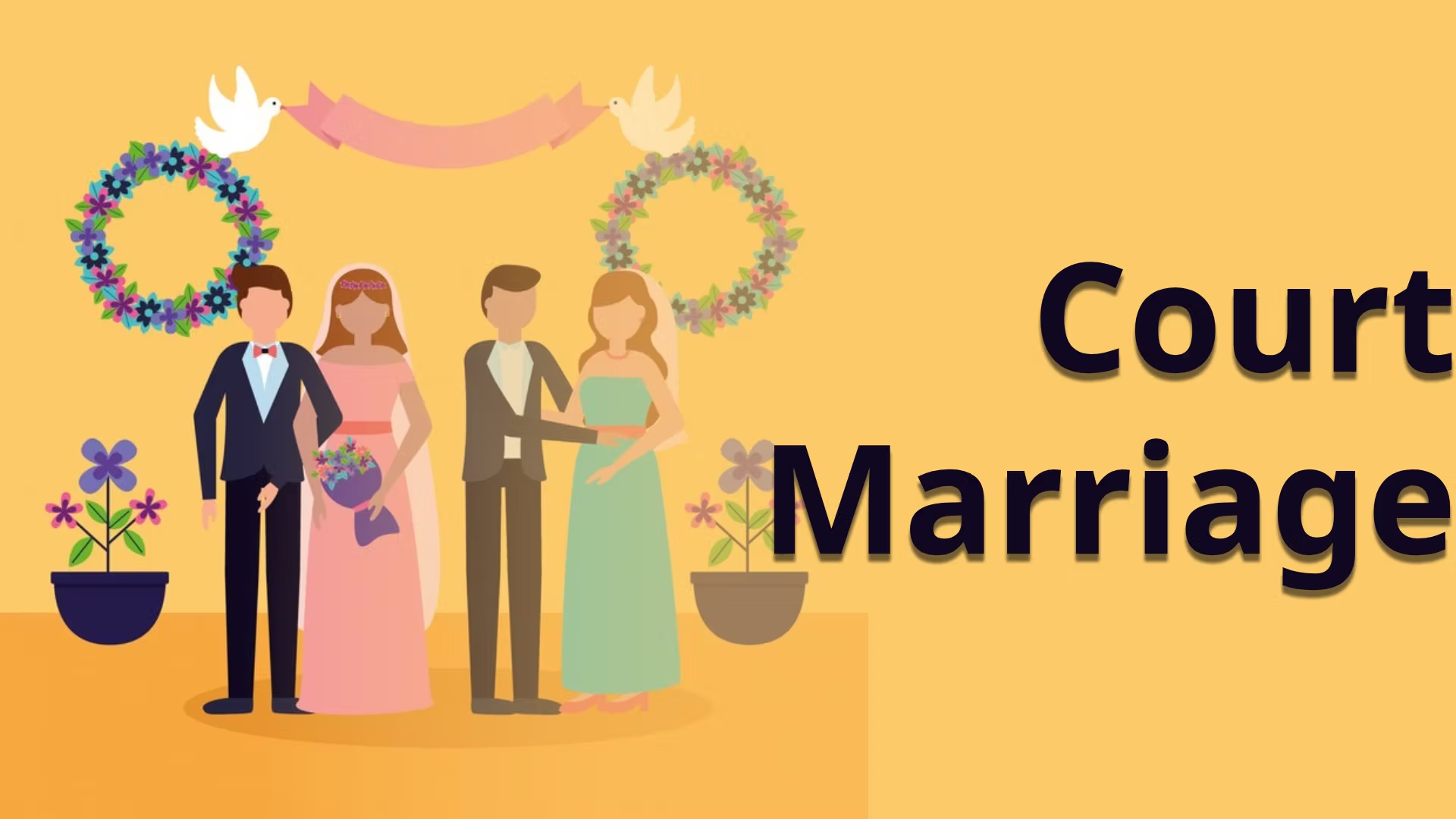Court Marriage Overview
Civil marriage, also referred to as court marriage, is the legal union between two individuals that takes place outside of any religious ceremony. Instead, couples appear before a judge or magistrate and exchange vows in front of witnesses present at their court wedding ceremony.
Court marriage procedures vary from jurisdiction to jurisdiction; typically, however, they involve obtaining a marriage license, filling out necessary paperwork, and scheduling a court appointment. Some jurisdictions may require waiting periods before their wedding can take place, while others do not.
Court marriage may offer several advantages over traditional wedding ceremonies, including being simpler and less costly for both partners involved. Furthermore, court marriage may also appeal to couples from various religious backgrounds or those who do not wish for religious ceremonies at their wedding.
Court marriage does not provide any additional legal rights or protections over those associated with traditional ceremonies, so couples should consult a legal professional prior to entering into any agreement involving court marriage.
Benefits of Court Marriage
Court marriage, conducted in front of a government official such as a judge or magistrate, offers several advantages over traditional civil unions:
- Simple and Efficient Process: Court marriage is an efficient and straightforward way to marry quickly, typically taking no more than one day from start to finish. It involves filling out paperwork, providing identification documents, and paying a fee – usually all of this can be accomplished in a single day.
- Cost-Effective: Court weddings tend to be less expensive than traditional weddings, which may involve venue rentals, catering costs, and other associated expenses.
- Legal Protections: Court marriage provides both partners with legal protections, including inheritance of property, medical decisions for both partners, insurance benefits, and other rights.
- Privacy: Court marriage offers an alternative to making the wedding a public event, which may not be desirable for certain couples.
- Interfaith or Inter-Caste Marriages: Court marriage is an attractive option for couples from different religions or castes who want to avoid societal stigma or family disapproval of traditional ceremonies.
- Short Notice: Court marriages provide an ideal solution for couples who need legal recognition of their union quickly.
Court marriage offers simplicity, affordability, legal protection, privacy, and flexibility, making it an appealing option for couples who prefer to forgo traditional wedding pressures while still obtaining legal recognition of their union.
Eligibility Criteria for Court Marriage Process:
To be eligible for court marriage, certain criteria must be fulfilled. These requirements may vary depending on local laws and regulations, but generally, the following criteria apply:
- Age: Both parties must be 18 or older; however, some states may allow individuals as young as 16 to marry with parental permission.
- Mental Capacity: Both parties should be of sound mind and capable of understanding the nature and consequences of marriage, without being under the influence of drugs or alcohol, mentally incapacitated, or coerced.
- Marital Status: Both parties must be unmarried at the time of marriage. If either has been previously married, proof of divorce or annulment must be provided.
- Relationship: The couple must not be closely related by blood or marriage, which could result in an incestuous relationship. Incestuous relationships are defined by state or country regulations.
- Citizenship/Residency: Both parties must meet the citizenship or residency requirements set by the jurisdiction where their marriage will take place, although some regions require only one party to be a citizen or permanent resident.
- Consent: Both parties must freely consent to the marriage, and any coercion, fraud, or misrepresentation can render the marriage invalid.
- Witnesses: Some jurisdictions may require one or more witnesses to attend the marriage ceremony.
Consult local authorities to ascertain the eligibility criteria and requirements for court marriage in your state or country.
Documents Needed for Registering Court Marriage
The documents required for registering a court marriage will depend on the laws of your specific jurisdiction. However, common documents required include:
- Identification Documents: Both parties should present identification documents, such as their passport, driver’s license, or national ID card.
- Proof of Age: One or both parties may need to present proof of age, such as a birth certificate or government-issued ID.
- Address Proof: Both parties may need to provide proof of residence, such as an electricity bill, rental agreement, or other address-verifying documents.
- Marriage Application Form: A marriage application form must be completed and submitted to the court.
- Photographs: Recent passport-sized photographs of both parties.
- Witnesses: One or two witnesses may be required to attend the court marriage registration.
Before proceeding with the court marriage registration, ensure you gather all necessary documents required by the jurisdiction.
How Adarsh Singhal and Its Associates Can Assist in Court Marriage Proceedings
Adarsh Singhal and its Associates offer various services to assist couples seeking court marriage. Here are ways we can assist:
- Information and Guidance: We can provide detailed information and advice regarding the legal requirements for court marriage in Jaipur, including necessary documents and procedures.
- Document Preparation: Our legal experts will assist in gathering all required court marriage documents, such as marriage registration forms, affidavits, and other necessary papers.
- Legal Representation: If legal representation is required during the court marriage proceedings, our experienced lawyers can ensure your interests are well-represented.
- Mediation: If any issues arise regarding your court marriage, we offer mediation services to help resolve them without resorting to litigation.
At Adarsh Singhal and Its Associates, we ensure that the legal aspects of your court marriage are handled effectively and correctly.

